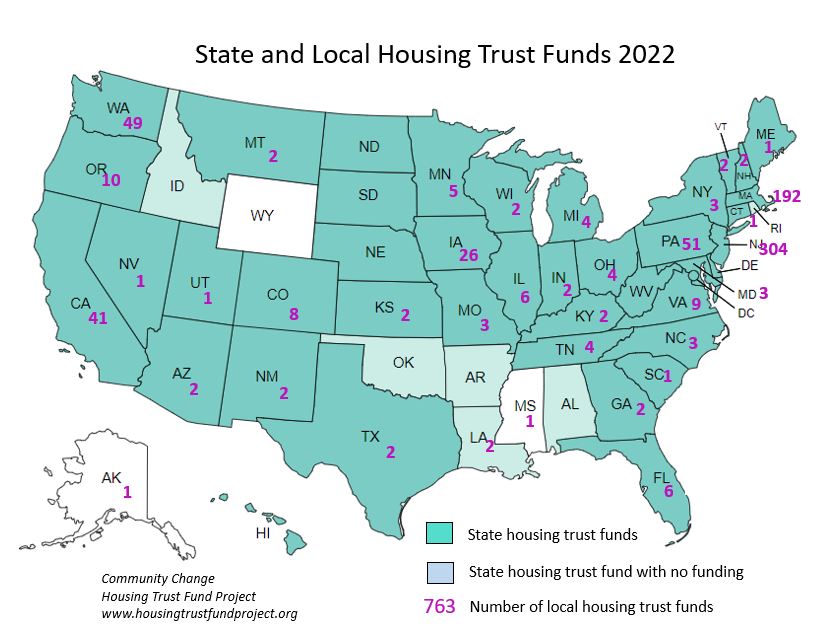 Housing trust funds are established by elected government bodies—at the city, county, or state level—when a source or sources of public revenue are dedicated, by ordinance or law, to a distinct fund with the express and limited purpose of providing affordable housing.
Housing trust funds are established by elected government bodies—at the city, county, or state level—when a source or sources of public revenue are dedicated, by ordinance or law, to a distinct fund with the express and limited purpose of providing affordable housing.
Ideally, the funds are automatically transferred annually into the housing trust fund account, providing a continuous funding stream without going through an appropriation or budgeting process. Ideally, the funds can be used only in accordance with the enabling legislation or ordinance establishing the fund, targeted to serve the most critical housing needs. But these ideals are not possible in every situation, legally or politically.
The Housing Trust Fund Project advances the concept that a housing trust fund is created when public revenue sources are dedicated to this distinct fund. States may have constitutional or procedural issues that impact whether and how this can be done at the state, city, or county levels. Where legal barriers exist to dedicating public funds to a housing trust fund, housing advocates have worked around this in various ways. In such circumstances, a housing trust fund may be implemented with appropriated funds or funds that do not go through a budget process (such as state housing finance agency reserve funds or something structured as part of a bond package).
The housing trust fund model is just that—a model that defines a new objective for funding affordable housing, enabling the support of needed housing to be a fundamental part of what government does. Some thirty years after the idea was formed, the model of dedicating public revenues to create a distinct fund supporting affordable housing has been embraced by hundreds of government bodies. The impact of housing trust funds can be felt in 49 states and Washington D.C., Guam, and Puerto Rico. More than 828 housing trust funds in cities, counties, and states generate nearly $3 billion annually to support critical housing needs, underscoring the integral role these funds play in affordable housing. They exist because community organizers, housing advocates, elected officials, and other allies have agreed that a permanent stream of revenues for affordable housing should be a public priority.
Click here for a list of existing state and local housing trust funds.
